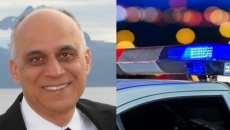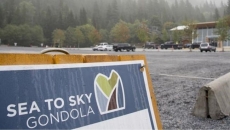OTTAWA — Federal ministers say all COVID-19 border restrictions will be removed as of Saturday, including mandatory vaccination, testing and quarantine of international travellers, as well as the requirement for masks on planes and trains.
The cabinet order maintaining COVID-19 border measures will not be renewed when it expires on Sept. 30.
But Health Minister Jean-Yves Duclos is once again warning that pandemic restrictions could be reinstated if they are needed.
"We have learned over the last (two-and-a-half) years the type of measures that can work," Duclos said Monday.
"We will therefore leave open all possible options when it comes to protecting the health and safety of Canadians."
Thanks in large part to Canadians who rolled up their sleeves to get vaccinated, and our dedicated public health and frontline workers, we have reached the point where we can safely remove the measures put in place to manage COVID-19 and its variants at our borders. pic.twitter.com/PWPx82bPO2
— Jean-Yves Duclos (@jyduclos) September 26, 2022
The changes mean foreign nationals will no longer require an approved series of vaccinations to enter the country.
In addition, Canada-bound travellers will no longer be subject to random COVID-19 tests, and unvaccinated Canadians will not need to isolate when they return to the country.
Cruise passengers will not have to do pre-board tests or prove they have been vaccinated.
And people who enter the country after Saturday will not need to monitor and report if they develop signs or symptoms of COVID-19.
The five federal ministers making the announcement said the changes are informed by science and epidemiology, adding that modelling indicates the peak of the latest wave of the disease has "largely passed."
But they did face questions about whether the move is at least partially politically motivated as the Liberals contend with the newly elected Opposition leader, Pierre Poilievre.
The Public Health Agency of Canada is still strongly recommending that people wear masks, particularly in crowded environments such as planes and trains.
"The science is clear: wearing a mask is clearly a means of personal protection that is extremely effective," said Dr. Howard Njoo, Canada's deputy chief health officer.
"I hope Canadians will make an enlightened decision about this."
Duclos said the negative attitudes of some passengers have made things very difficult for airlines and crews to enforce the mask mandate in recent months, and cited that as a factor in the decision.
"The transmission of the variants of COVID are domestic-based, for the most part, and therefore, this is what we should stress: masking is highly recommended … but it is not something that can be, in a sense, forced."
That is a change in messaging from earlier in the summer, when the government and public health officials insisted that maintaining measures at the border was necessary to track and prevent the introduction of new variants.
Public Safety Minister Marco Mendicino said there have been 38 million entries at the border in 2022 so far, more than double the number in all of last year. “We want to keep that momentum going."
The controversial ArriveCan app will no longer be mandatory when the order expires.
“Going forward, use of ArriveCan will be optional, allowing travellers who so choose to submit their customs declaration in advance at major airports,” Mendicino said.
So far that option is available at international airports in Toronto, Montreal and Vancouver, but that will be expanded to include Calgary, Edmonton, Winnipeg, Ottawa, Quebec City, Halifax and Billy Bishop airport in Toronto.
In addition, the Canada Border Services Agency is looking at adding features to ArriveCan to be able to provide information such as border wait times.
The changes do not remove the quarantine or testing requirements for people who enter Canada before Saturday.






